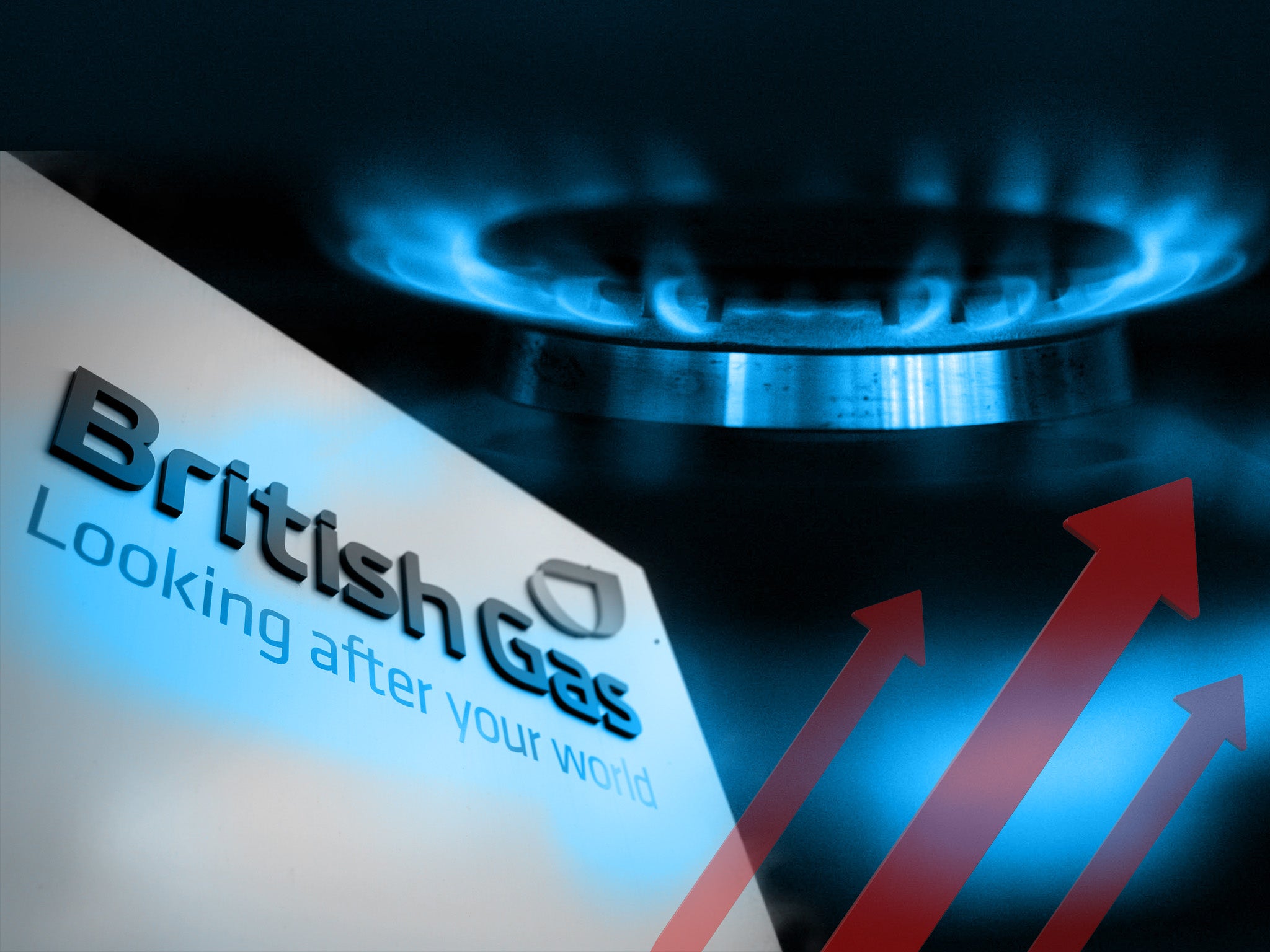How did British Gas make almost £1bn profit despite energy price caps?
‘Disbelief’ from campaigners will be echoed by millions of struggling households, as Andrew Grice explains


British Gas made a record profit of £969m in the first half of the year, after the energy regulator Ofgem raised the energy price cap to compensate suppliers for previously setting it too low.
Britain’s biggest household energy provider, which supplies 7.5 million households, saw its profits rocket to 10 times more than the £98m it made in the same period last year, breaking its previous record of £585m in the first half of 2010.
Centrica, which owns British Gas, chalked up a record interim profit of £2.1bn. It announced it will reward investors by paying an increased dividend of 1.33p per share and buying back a further £450m of its own shares. To try to limit the controversy over that, it will provide £50m more support to help customers struggling with energy bills that for many households are still double what they were a year ago.
What has the regulator done?
Ofgem fixes the cap to limit the prices that energy suppliers can charge for standard variable energy tariffs, which determines the bulk of their revenues. It admitted that, as wholesale gas and electricity costs soared in 2021 and 2022 amid the war in Ukraine, it set the cap too low, suppressing profits and leaving many suppliers making losses. To compensate, it included extra allowances in the cap this year, worth about an extra £102 revenue per customer over the first six months. About half of British Gas’s profit – £500m – was due to this change.
Ofgem understands big firms are getting a “large one-off boost.” A spokesperson admitted: “While many consumers will find high profits difficult to accept at a time when they are struggling, no sector can survive for long losing money. These figures are reasonable and expected, given that for this time period only they are largely made up of some of the genuine costs and losses made over several years due to Russia’s invasion of Ukraine.”
What is the government saying?
Rishi Sunak said the government’s windfall tax on energy firms had helped to pay “around half of a typical family’s energy bill” and had been worth £1,500 to consumers.
What do opposition parties say?
The British Gas figures sparked a renewed debate about the role of Ofgem, which some politicians see as too close to the industry. Ed Miliband, the shadow climate and net zero secretary, described the British Gas profits as “unearned” and a “windfall of war.” He said the government’s windfall tax on energy producers was “full of holes” like “Swiss cheese.” He called for the current rate, at 75 per cent of profits, to be raised to 78 per cent.
Ed Davey, Liberal Democrat leader, said: “It beggars belief that after all these months this Conservative government is still allowing energy firms to rake in extraordinary profits while millions of families struggle.”
What are campaign groups saying?
Simon Francis, coordinator of the End Fuel Poverty Coalition, said the British Gas profits were “a further sign of Britain’s broken energy system.” He added: “The profits posted will be greeted with disbelief by those struggling through the crisis…energy firms are operating on a playing field set by the government.”
Emi Murphy, warm homes campaigner at Friends of the Earth, said: “There’s no acceptable reality where an energy company should see profits rise by nearly 900 per cent over the same period millions struggle to afford to power and heat their homes. It’s indefensible that firms behind both our soaring bills and the deteriorating state of the planet are still raking in billions in excess profits.”
Are British Gas profits the only ones raising eyebrows?
No. Two other energy suppliers also announced large profit increases following the change to the price cap.
Scottish Power moved from a large loss last year to a £576m profit in its retail division, while France’s EDF said its British operations’ earnings jumped from £740m last year to £1.95bn. Separately, the oil giant Shell announced it had made £3.9bn in the three months to the end of June, which was down 56 per cent and short of expectations.






Join our commenting forum
Join thought-provoking conversations, follow other Independent readers and see their replies
Comments